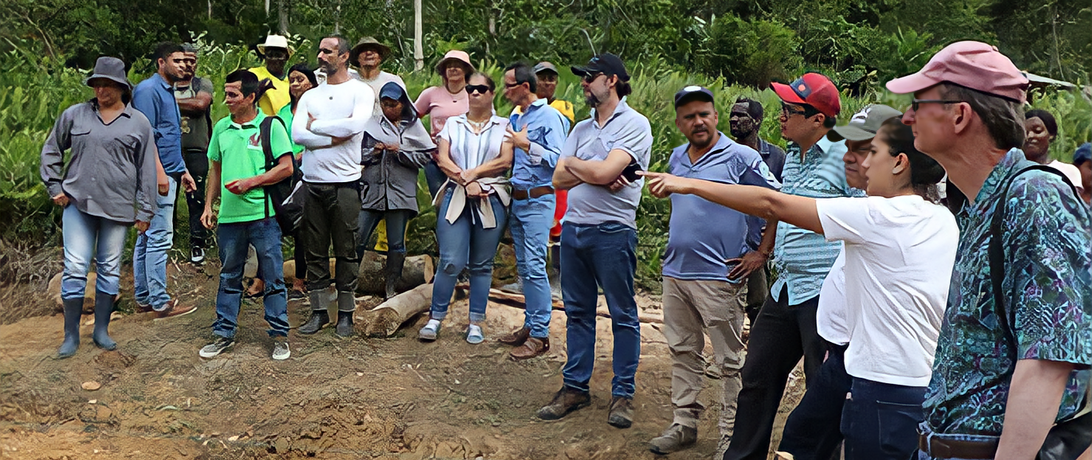Pontus Ohrstedt, manager of the United Nations Multidonor Fund for Sustaining Peace, and Juan Carlos Mahecha, director of the Colombia in Peace Fund, toured the municipality of Dagua, verifying the progress of the Contingency Plan developed by PASO Colombia. This plan supports families linked to the Comprehensive National Program for the Substitution of Illicit Crops (PNIS) in 10 municipalities in the country. In Dagua there are 200 people who are heads of related families, of which 132 are women.
The directors of the UN and the National Government, as well as the PASO Colombia team, spoke with the people who receive training, support and payment for community service in exchange for their work in improving production processes, creating markets, building community infrastructure and childcare to enable mothers to participate in these activities. They also discussed the progress and difficulties of the PNIS in this region with the mayor of Dagua, Ana María Sanclemente, as well as with the local environmental authorities in charge of protecting the Farallones National Natural Park, which covers a good part of the territory of the municipality.
Both the communities and Mr. Ohrstedt, Mr. Mahecha and the local authorities agreed that the work carried out by PASO Colombia with this Contingency Plan has made it possible to overcome the difficulties that the PNIS faced in moving from the phase in which families they substitute their crops for illicit use towards the stage in which their productive projects begin to function. They identified the permanent accompaniment that PASO provides, as well as the strengthening of social organizations and the creation of a social fabric as key aspects of the success of this plan.

